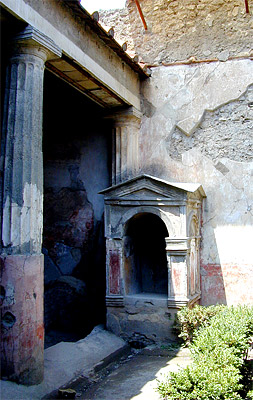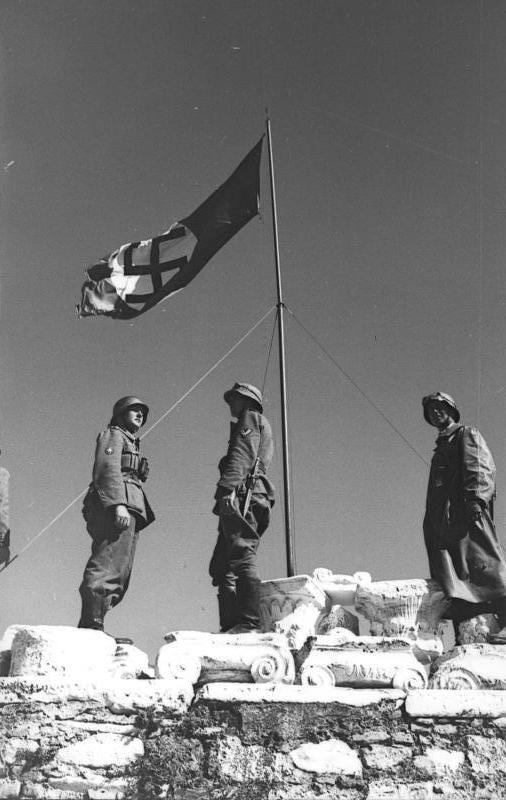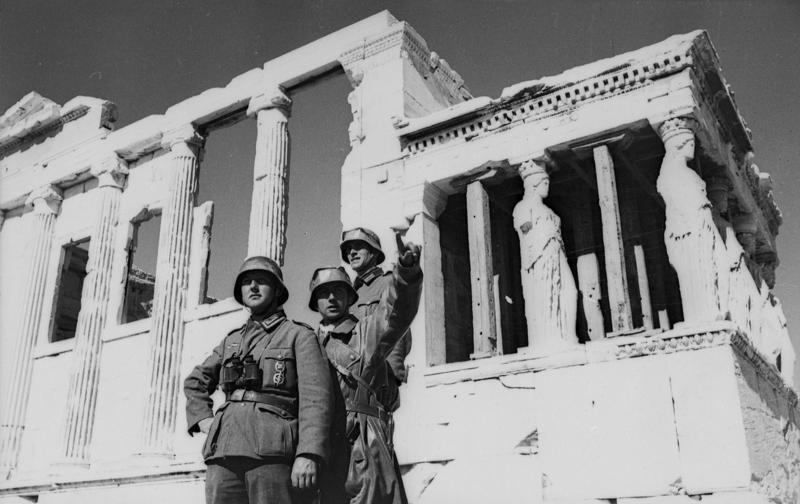I recently had to drive 9 hours up to Columbus, Ohio. The drive itself wasn't too bad. Books on tape, a new favorite hobby of mine, always make the trip go faster. I had checked out a new trilogy by Ursula K. Le Guin, the 'Annals of the Western Shore,' published between 2006 and 2009. Not only did it seem like an interesting listen, but I thought I'd steep myself in some more Le Guin before I read Lavinia.
It was during the trilogy's second book, Voices, that I saw how steeped Le Guin had become in Roman history, no doubt part of her preparation and inspiration for Lavinia. The city of Ansul, where the novel's action takes place, is very much a Roman city, with its libraries, colonnaded buildings and marble-paved floors. Socially and politically it looks the same, with echoes of a patronage system, Great Families and epic poems recited in the forum. Le Guin's Ansul, having been subjugated by an invading force, now remains only an echo of its former self, half empty and broken, waiting to throw off the yoke of its invaders. The enemy force that had sacked the city - burning, looting, raping, drowning books in the city's canals - are called the Alds, a name that, when said out loud, sounds very much like 'Gauls'.
But these Alds are not just barbarians with different colored hair and strange manners of dress - they are also the book's equivalent to Muslims, with only one god (worshipped on prayer mats), an abhorrence and hiding-away of women and a holy war to boot. I would have hoped for a little more subtlety from Le Guin when it came to their depiction, but I think perhaps her intended teen audience required a blunter and more obvious association to modern goings-on.
Although the Battlestar Galatica-esque contrast between monotheistic and polytheistic cultures was a bit heavy-handed, I especially enjoyed Le Guin's depiction of the religion of Ansul. It is very much Roman popular religion, sans the public and state-rites that we mostly hear about. In fact, Ansul has no priests and no temples, only domestic shrines, street-altars, god-niches, and sacred stones.

A compitum (a type of neighborhood street-shrine) at Pompeii, from one of my favorite websites, Pompeii in Pictures.

Painted lararium (private shrine) from Pompeii's House of the Vettii.
When the main character, Memer, is asked who her gods are, her litany sounds particularly Roman (with a bit of Hindu thrown in). She responds, "My gods are Lero; Enu Who Makes the Way Easy; Deiory Who Dreams the World; The One Who Looks Both Ways; the Keepers of the Hearth Fire and the Guardians of the Doorway; Iaina the Gardner; Luck Who Cannot Hear; Karan Lord of the Springs and Waters; Sampa the Destroyer and Sampa the Shaper, Who are One; Taru at the Cradle and Anada who Dances on the Grave; the Gods of the Forests and the Hills; the Sea Horses; the Soul of My Mother... and the Soul of [My Grandmother] and the Souls and Shadows of all Who Have Lived in this House, the Forerunners Who Give us our Dreams; the Room Spirits, my Room Spirit; the Street Gods and the Crossway Gods; the Gods of the Market and the Council Place; the Gods of the City and of Stones and the Sea and [the Mountain]."*
When I listen to the book, all I see in my mind's eye is Pompeii. The novel has been a pleasure to listen to, not only because Le Guin is a masterful story-teller, but also because she so effectively awakens Roman popular religion, highlighting the interaction that normal people had with the gods on a daily basis. I am interested to see how Le Guin will portray the religion of 'Archaic' Italy in Lavinia, and especially looking forward to her rendering of Etruscan culture and religious practice. 
Charu and Vanth, Etruscan psychopomps, here guarding the Hellenistic-era Tomb of the Anina Family.
We're lucky to have Le Guin, I think. It took me a while to get to her books, but she slowly grew on me with each one I read. I'm of the opinion that she is rightfully considered one of the Master's of the Fantasy/Sci-Fi genres, and I can't wait to see her approach to historical fiction and to Vergil's epic poetry.
*This transcription comes from the book-on-tape and therefore has incorrect spelling. Nor do I have a page number, but it's from Chapter 9.










 I felt like this woman was turning into Cthulhu.
I felt like this woman was turning into Cthulhu.

